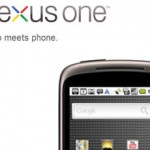 Mountain View, California — German request for data examination reveals that its globe-trotting Street View cars it has used since 2007, have been “accidentally” collecting payload of information collecting information sent over open WiFi networks, contradicting previous assurances by the company.
Mountain View, California — German request for data examination reveals that its globe-trotting Street View cars it has used since 2007, have been “accidentally” collecting payload of information collecting information sent over open WiFi networks, contradicting previous assurances by the company.
Google acknowledged in a blog post last week that it has been snooping on Wi-Fi users as its Street View cars have been roaming around neighborhoods throughout the world collecting data for its mapping service.
The issue became apparent after German authorities asked to examine the data the company’s Street View cars gathered as they took photos viewed on Google maps.
In a blog post published on Friday afternoon, the company said that it has grounded its Street View cars and halted further data collecting activities after it became conscious that it has been inadvertently collecting data about people’s online activities from unsecured Wi-Fi networks over the past four years. The company has assured to delete the data. But before doing so, it will be asking regulators in “the relevant countries” how this should be done.

A Google mapping car with which the web giant admits accidentally collecting wifi data. Photograph: Ben Birchall/PA
Google said during a reassessment it found it had “been mistakenly collecting samples of payload data from open networks”. This means that Google may have collected emails and other private information if they traveled over WiFi networks while one of the cars was in range. Previously, the company said no payload data was ever intercepted. The admission will increase concerns about potential privacy breaches.
Ginger McCall, a staff counsel with the Electronic Privacy Information Center (EPIC), a public watchdog, claims that the data collection is a “breach of customers’ trust,” and she questions Google’s assertion that it was collecting the data by mistake. “People need to ask why was Google collecting this information,” McCall said.
“It is unenviable that this would be done accidentally. This really flies in the face of their assertion that customers should just trust them, McCall added.”
Google squared the blame on a piece of legacy code dating back to 2006 when “an engineer working on an experimental wi-fi project wrote a piece of code that sampled all categories of publicly broadcast wi-fi data,” had been re-used to program equipment on the Street View cars, and said it will ask a third party to oversee deletion of the data and its procedures.
“Maintaining people’s trust is crucial to everything we do, and in this case we fell short,” wrote Alan Eustace, senior vice president of engineering and research.
That code was included in the software the Street View cars used and “quite simply, it was a mistake,” said Eustace.
Google had apparently told German authorities last month in response to a complaint from the German DPA, that it had been gathering “publicly broadcast SSID information (the Wi-Fi network name) and MAC addresses (the unique number given to a device like a Wi-Fi router) using Street View cars.”
Google said the the data accumulated is amounted to about 600 GigaBytes of data dispatched over public Wi-Fi networks in more than 30 countries. The company said that it has not used the data and none of the information has appeared in the company’s search engine or other services.
These snippets could include parts of an email, text or photograph or even the website someone may be viewing. But in a blog post it said that it did not collect payload data or information dispatched over the network. Google uses this data in products that depend on location data, such as Google Maps. The company is now asking for a third party to review the software that caused the problem and examine precisely what data had been gathered.
The disclosure could not come at a worse time for Google, following strident criticism over its Google Buzz launch from privacy experts and a growing unease among consumers regarding the amount of data it collects.
“This incident highlights just how publicly accessible open, non-password-protected WiFi networks are today,” the company said. “Earlier this year, we encrypted Gmail for all our users, and next week we will start offering an encrypted version of Google Search.”
“The engineering team at Google works hard to earn your trust – and we are acutely aware that we failed badly here,” Eustace said.


